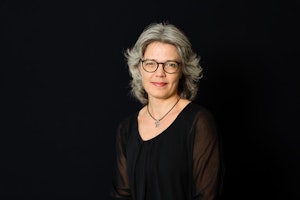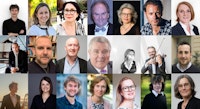Thank you so much, deputy mayor Abdullah Alsabeehg and the staff at Oslo City Hall for inviting us to come here on this occasion.
I would also like to thank the colleagues and students from the institutions in Cork, Utrecht, Lahti, Valencia, Vienna and Kristiansand for coming to Oslo. I feel confident that you have met interesting people, learned a lot, and become inspired and perhaps challenged during the last days, by way of the programme Andreas Sønning has put together – with the assistance of Tone Jordhus and others – at the Norwegian Academy of Music.
The European Creative Futures project has been going on since 2010 and has involved around a thousand participants altogether, making connections not only between countries but between different types of institutions and disciplines. The basic idea is to find creative ways to link art and music with entrepreneurial skills, including marketing and innovation.
ECF thus inspires creativity at many levels – and it looks into the future. A future labour market where some of our students are likely to get a job – in orchestras, wind bands, music schools or elsewhere in the business, but a larger part of them instead of getting a job have to create or put together a combination of tasks and skills to make a living. In order to keep making – and creating – music.
So the aim of ECF, and a lot of the daily business in our various institutions, is to provide our students with tools to create a future for themselves. But it is also about being part of a shared future, a future that from a European perspective feels more insecure than for decades: the war in Ukraine, the energy crisis and expenses for our daily living, not to mention the climate crisis and the threats to freedom and democracy from powerful regimes around the globe.
Can music possibly contribute to solving any of these challenges?
I firmly believe so. Most of all, simply because music is a fundamental part of being human. It is what we turn to seek comfort and encounter fear, to celebrate and to develop excellency, and to create new, great or impressive works. And even controversial works, that can only be made where there is artistic freedom and freedom of speech.
Music is by nature also about relations. It happens between the sound and the sensory apparatus of the human being, and even more often, between many human beings. Music takes part in time and thus creates shared moments. In all sorts of settings.
Over the last weeks, a TV series about a choir for people with dementia ("Demenskoret") has conquered the hearts and tear ducts of hundreds and thousands of Norwegian watchers – or listeners, if you will. It is deeply touching and it shows – by way of music pedagogy, music therapy and research – how music-making can improve the quality of life for people suffering from dementia. And this will probably make a difference, all over Norway. Two days ago, colleagues from NMH were here, in the City Hall, discussing with the mayor how more choirs like this can become part of the regular health care in Oslo.
Projects like this demonstrate the power of music in one way, focusing not on how good the professional performers are, but on what good music does for the other, or others.
On the other extreme (perhaps), we may think of a classical concert, where people are instructed to – or just know that they have to (after having paid expensive tickets) – sit still, not applaud between the movements, and take in an autonomous piece of art.
To me, this is also relational. The concert ritual is a shared, human experience – in whatever form or genre it is.
Music is a special language in the sense that it can connect people beyond the spoken and written word in a more direct, emotional way. To me, this is a democratic force.
As humans we need to negotiate, to talk, but no less importantly, share other forms of communication, and other moments.
This is also what we will do here and now, when we in a moment will listen to the first movement from Joseph Haydn’s string quartet op.33, no.4 in B flat major: Allegro moderato, performed by the brilliant student quartet Zora.
Thanks again, and please give them a warm welcome!
Oslo, January 26, 2023

